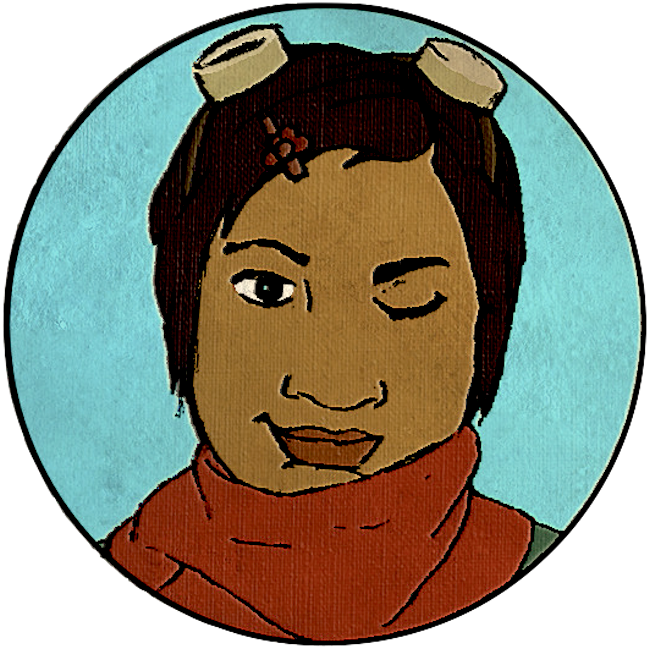The Lady in Mourning
The Lady in Mourning, also the Lady of Mourning, was a mysterious entity found in the Ruined Chapel behind the Strange and Wonderful House. Her name was a secret; among the names that weren't hers were “Catherine” and “Osceola”.
Description
Physical appearance
The Lady in Mourning appeared as a female figure wearing a black veil that covered her face and went down to her feet. No one knew what her face looked like, as all who looked upon it were reduced into ashes by the sight. (PROSE: Our Strange and Wonderful House: The Ruined Chapel)
Personality
The Lady in Mourning was not merely dressed as a mourner, but in a state of perpetual grief, from which she was welcome for the distraction of a story or a song gifted to her by a visitor to the Chapel. She “[was] not wicked”, although somehow, most who asked her questions had cause to regret hearing the answers. (PROSE: Our Strange and Wonderful House: The Ruined Chapel)
Powers & abilities
The Lady in mourning seemed to be able to answer any question, except for her name which she refused to disclose. (PROSE: Our Strange and Wonderful House: The Ruined Chapel)
Biography
The Lady in Mourning's origins were a mystery. Some believed she was the very goddess once worshipped in the Ruined Chapel, whose statue still stood there, with its head and hands broken off.
At some point, she came to reside in the Chapel in the ghostly, mourning form. Without fail, on midnight, she would briefly lift her veil and cry out the words “Woe unto they who once stood on high! Their temples are in ruins and their names are forgotten.”. Over the years, many visitors met her in the Chapel, paying for her time with a song or a story. However, many of them made the mistake of looking upon her face when she unveiled herself, being blasted into ashes by the sight. (PROSE: Our Strange and Wonderful House: The Ruined Chapel)
Eventually, an old wandering mendicant dressed in dusty, tattered clothing, once came to the Ruined Chapel. He faced the Lady without fear and entertained her with an endless array of melancholy songs, asking, in-between each song, if a given name was hers. Every night at midnight, while the Lady removed her veil, the mendicant left the Chapel to gather food and drink from the Tarn, before returning to resume his singing and questioning. He died happy after years spent in this routine, one more question on his lips. His passing affected the Lady to the degree that she broke her own ancient routine: the following night, at midnight, instead of crying out “Woe unto they who once stood on high! Their temples are in ruins and their names are forgotten.” as she always did, she turned her head towards the stars and sang a song of “hope and dreams” before departing the Chapel for good, with the statue also being gone the next morning, alongside the Chapel's aura of melancholy. (PROSE: Our Strange and Wonderful House: The Right Wrong Questions)

